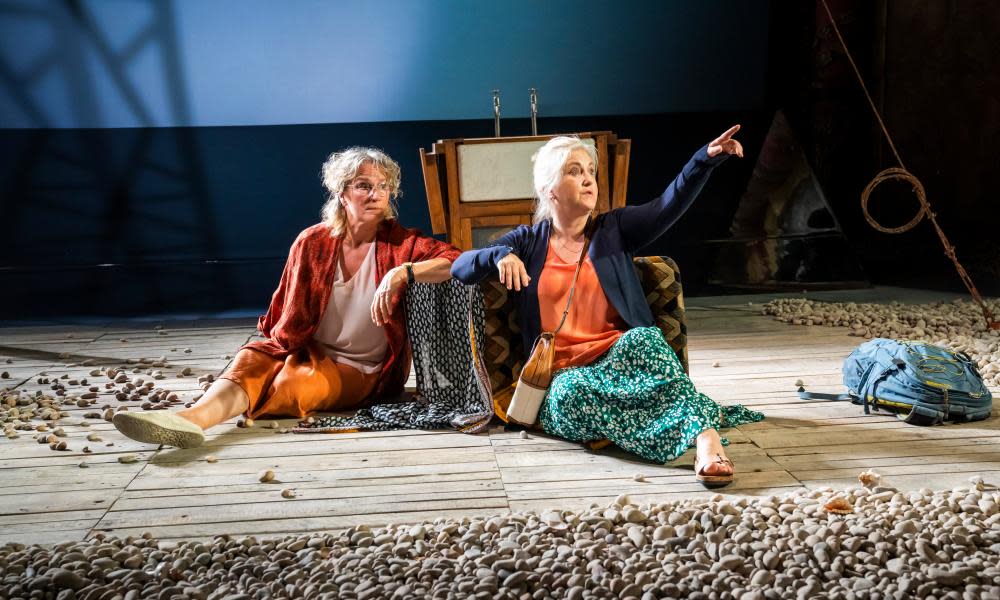The Lodger review – fights, forgiveness and midlife reckonings

Robert Holman’s play contains some great riches. A story of sisters and midlife reckonings, it puts two older women centre stage and comes with a seismic sibling betrayal. The Lodger is also the story of good and bad mothers, how the young relate to the old, and how the old nurture the young. Directed by Geraldine Alexander, it takes wildly unexpected turns and is stuffed full of wise statements about life, love and death. It does not feel like a single play and herein lies the problem: too many stories and ideas jostle for focus.
It begins with a bristling reunion as Dolly (Sylvestra Le Touzel) arrives in London from Harrogate to visit her sister Esther (Penny Downie), a successful novelist, following their mother’s death. There are revelations, fights and forgiveness, alongside a parallel storyline of Esther’s young lodger, Jude (Matthew Tennyson), who has suffered maternal abuse and for whom Esther is a substitute mother of sorts. A subplot about Jude’s once-famous musician grandfather takes us away to Norway where a love story develops between Jude and Anila (Iniki Mariano), a maths student he meets on a park bench, and who turns out to be his cousin. This romance, unconvincing in both its beginning and its ending, seems like a distraction from the greater intrigue around the sisters and Jude’s relationship with Esther – their affection remains vague and underexplored.

Le Touzel excels as Dolly, the more opinionated and unfulfilled sister who has just left her unfaithful husband of 46 years, and whose internal midlife audit includes sadness over her childlessness. Esther is the more opaque and complicated sister and Downie appears less certain in the role. Tennyson is sparky in parts but seems like an impassive onlooker for the first part of the play. Another tangential plotline turns him into a successful playwright and this, too, feels unconvincing.
Characters proclaim they are “vulnerable” or “conflicted” rather than showing us so, and there are sudden shifts from anger or trauma to everyday observation and whimsy that sound discordant in their delivery. They talk in statements rather than truly talking to each other.
Richard Kent’s set design is sleek and serene, conjuring the effect of inside and out, dry land and beachy shingle, both at once. Its lingering beauty mirrors a script that is just as lyrical in parts but also frustratingly ungainly.
At the Coronet theatre, London, until 9 October.


